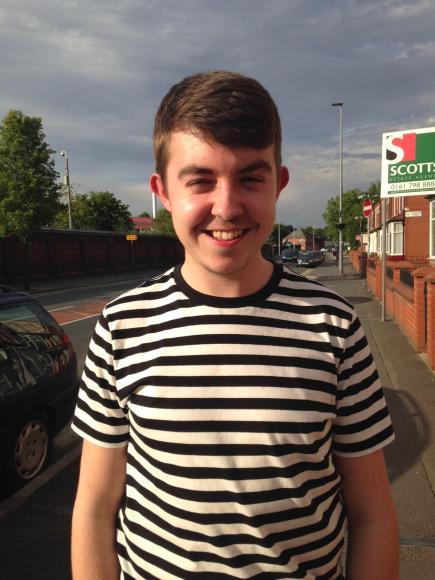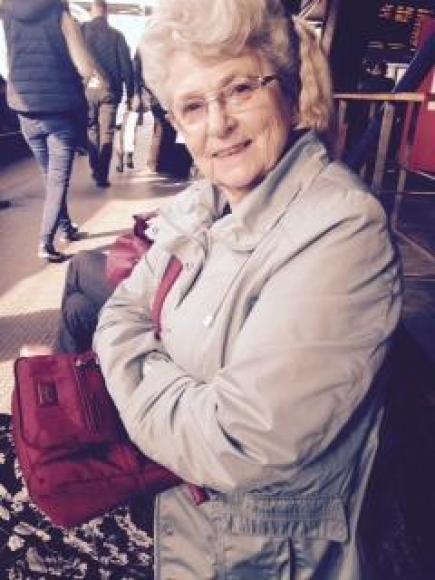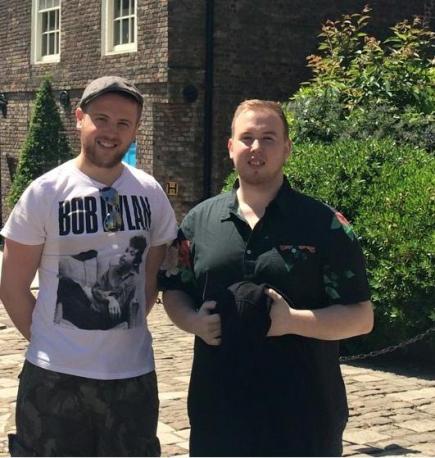A Government Minister has suggested that people should be forced to pay extra for their unhealthy snacks and sugary drinks in order to tackle obesity.
Speaking at the Hay Festival, George Freeman, Minister for Life Sciences, said that whilst he did not typically condone ‘heavy-handed legislation’, he would support increased taxation on unhealthy foods.
“Where there is a commercial product which confers costs on all of us as a society, as in sugar, and where we can clearly show that the use of that leads to huge pressures on social costs, then we could be looking at recouping some of that through taxation,” he said.
“Companies should know that if you insist on selling those products, we will tax them.”
In Manchester, 26% of adults are classified as obese and there are also higher than average rates of childhood obesity, with shocking statistics showing that 11% of 5 year olds are obese.
Obesity is becoming so common in young children that 24.7% of youths in Manchester are obese by age 11.
His calls are supported by the Children’s Food Campaign, who have been campaigning for a tax of 20p on every litre of sugary drink sold in England, in order to reduce children and teenagers’ sugar consumption.
Such a tax could save the NHS up to £15m a year, as the impact on diets could reduce cases of diabetes, stroke, heart disease and cancer.
Health experts have calculated that the impact of the tax would be particularly great in Manchester as it is one of the cities with the largest population of young people – the biggest consumers of sugary drinks.
MM took to the streets to see if the proposed tax came up bitter and got some surprising answers…
Harry Kane, a 34 year old ‘fro-yo’ dispenser, said that he would support any taxation, even though it might make his product more expensive: “I think it’s a good idea, believe it or not!
“I think we need to work towards a healthier society and be realistic about the fact that sugar kills. It can cause cancer, diabetes and all sorts of coronary heart problems.
“I see young kids drinking fizzy drinks because parents think it’s healthier, but actually they don’t have any understanding of what aspartame is. People don’t realise just how many products have added sugars to them that aren’t good for you.
“That piece of toast in the morning means you’ll be burning off added sugars instead of carbs, and then you inevitably put on weight.”

SUGAR TAX ON SUGAR SNACKS: Jordan Eyre believed in the proposed tax
Jordan Eyre, a 23-year-old student from Bolton, agreed that the sugar tax was a good idea.
“I think it’s important that people realise how much their decisions could be costing the NHS,” he said.
“They are eating their way into long-term health conditions that can mean that they can’t work, require a lot of support and will be on medicine for years.
“Any tax isn’t a welcome thought but it’s important that people take responsibility for their own life choices – similar to how smoking is taxed heavily.”
Laura Parsons, a 25-year-old barista, said that she would oppose any move to increase taxation, as it would be an unfair tax levelled at the wrong people.
“I just think that we need to look at the bigger picture and accept that the problem is really that people are not educated enough to make the right life choices that mean that they will be living healthily for most of their life.
“People don’t know that they shouldn’t be drinking fizzy drinks every day because they’re not taught properly about healthy food and how to cook cheap nutritious meals.
“I think it’s more shocking that there isn’t enough access to cheap, healthy, vegetables. In deprived neighbourhoods, it’s far more common to see overpriced corner shops with limited choice and fast food outlets than it is to see allotments and community gardens where people can grow their own food.”

EXERCISE REGIME: Ewen Thomas supports daily exercise to battle obesity
Ewen Thomas, a financial analyst who lives in Chorlton, said that he wouldn’t support a tax because it didn’t make any sense.
“I don’t understand how the government would decide what is unhealthy enough to be taxed and what is okay,” he said.
“I also think it betrays a lack of understanding about sugars – there are a lot of naturally occurring sugars which are good for you and this sort of tax might confuse people who don’t understand the differences between the bad and good types.
“Instead I think we should be making it mandatory for children to take part in exercise every day for at least an hour. I also think people who are obese should help pay for their own treatment if they were the main cause of it.”
Joe Leech, a 31-year-old electrician from Chorlton, believes the tax would be another example of excessive interference by the Government.
“I think we’re in danger of becoming a nanny state if we’re not careful,” he said.
“I’m sick to the back teeth of people telling other people what to do – just let people make their own choices and reap the consequences. If they want to gain six stone, then that’s their choice and they should also be able to deal with the consequences.
“If we allow the government to impose the tax than we’re going down a path where they end up basically choosing our food choices for us and that’s not something I don’t think anything wants.”
Tommy Brown, a 27-year old chemist from Didsbury, meanwhile, said he would support the tax.
“I think it’s really important that proactive steps are taken to ensure that the obesity problem in Britain is tackled,” he said.
“Diseases caused by poor lifestyles can have a huge negative impact on the quality of someone’s life and I’m glad the government are making decisions that are best for everyone long-term.”
Amy Mann, an 18-year-old supervisor at Thorntons, would also support a tax increase, and said: “I think it would only be a small increase and could make a real difference to people’s lives. I sell these products all day long and I see that people really enjoy them and are often sensible about how much they eat.
“I think this tax is really aimed at the products that are just high fat, high sugar, low nutritional value but advertise themselves as healthy. I know I’ve been tricked by products that look like they are good for you but are actually total rubbish. I think this tax could help stop that.”

‘PRICE TO PAY’: Esther Kelly thinks the tax would help people make healthier decisions
Esther Kelly, an 86-year-old retired nurse, said that she thought the tax was a brilliant idea: “I know that I’m often shocked by the size people are getting to be these days and I wonder what their eating habits look like. I worked as a nurse for forty five years and for the first twenty I never saw anything like it – people didn’t have enough to eat if anything.
“When I pick up the shopping I’m always very careful to check the label but I suppose that most people don’t have the time for that nowadays.
“I think a small price increase is probably the way to ensure people don’t make bad life choices that are going to cause the serious health problems in twenty years time.”

HEALTH EDUCATION: Patrick and Sean try to teach their students to eat healthily
Friends Patrick and Sean, 24-year-old trainee teachers, both thought that the tax was a good way to stop children from becoming obese.
“We both teach young kids and I’m constantly trying to explain to them why they should eat their vegetables and not have three packets of crisps for lunch”, said Patrick.
Sean said: “I just think that we need to be more active in ensuring that children don’t grow up to be obese and a way of doing that is by pricing them out.
“I teach physical education and I want to see playgrounds full of children running around, enjoying exercise and making positive life choices that are going to carry them on through life.”
Main image courtesy of Yagan Kiely, with thanks.



